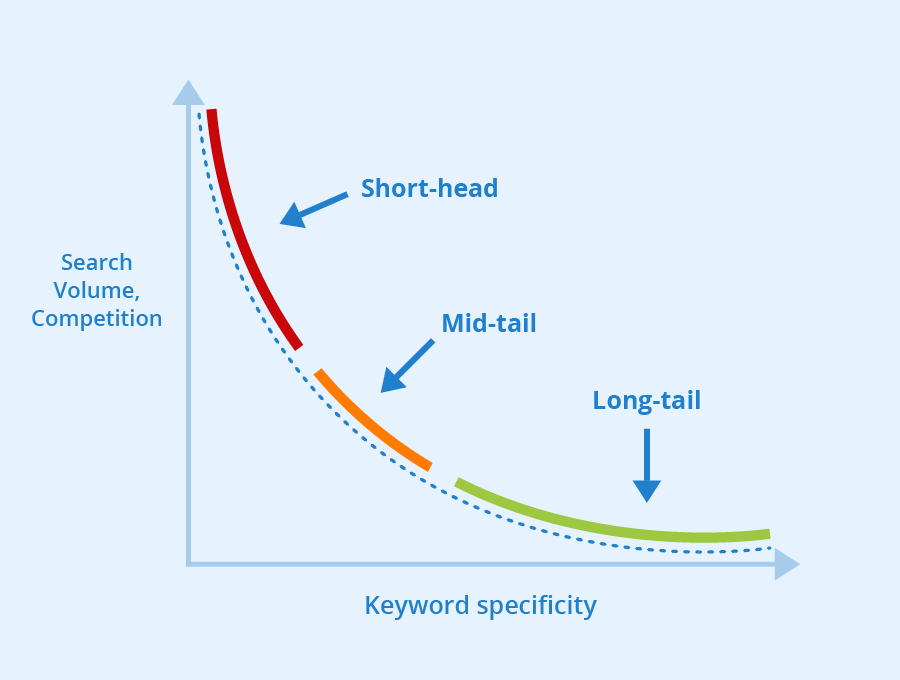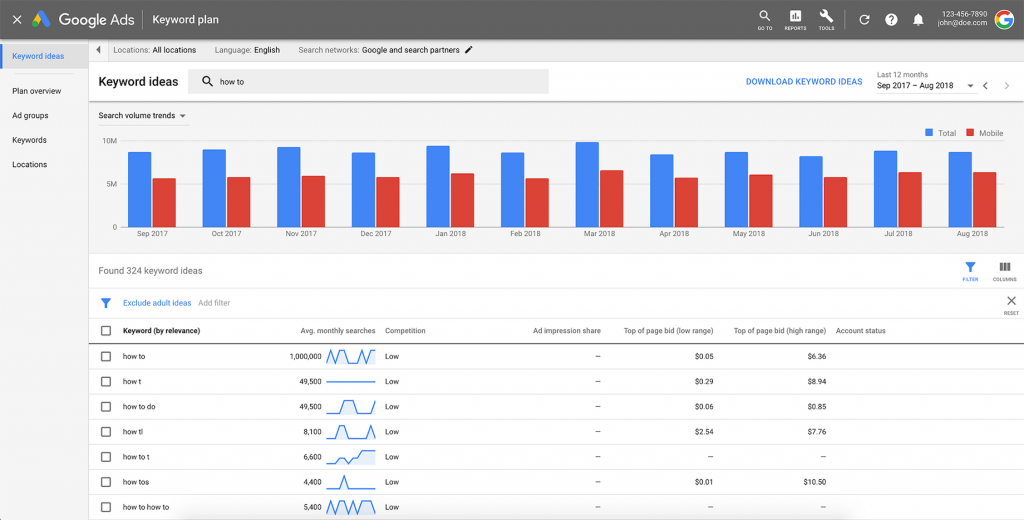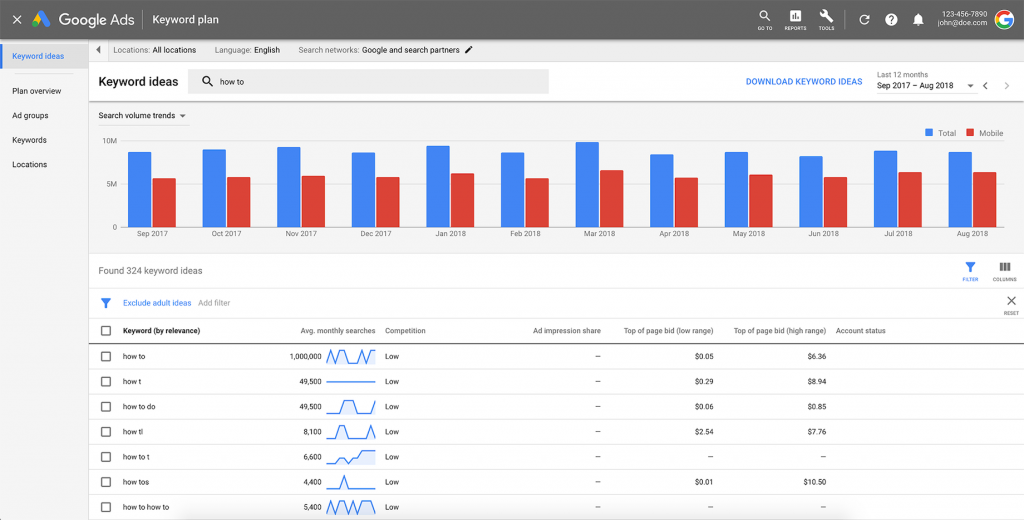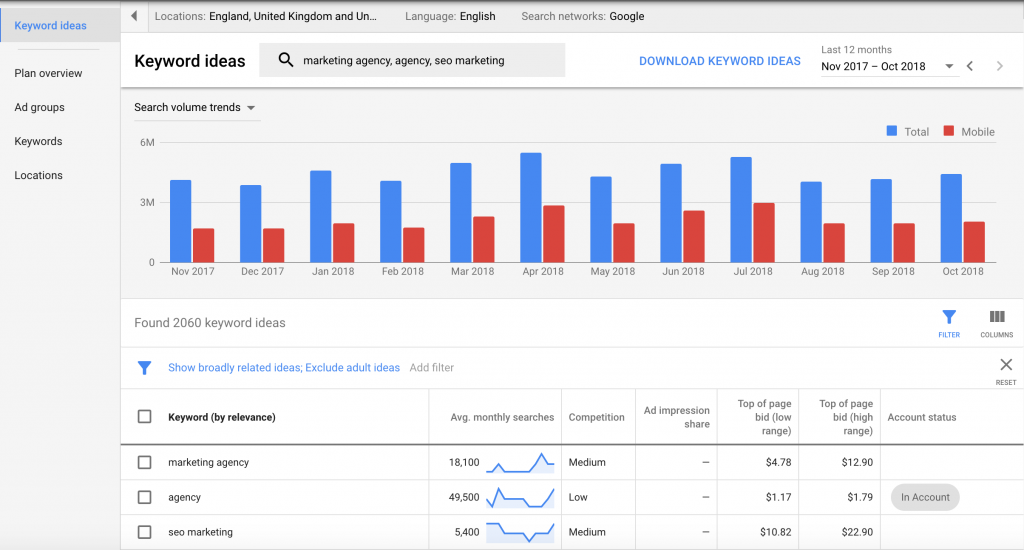Keywords can make all the difference between your site being ranked or completely overlooked. Choosing the wrong keywords could mean the beginning of the end, unless you have a good set of tools to figure out what words your potential audience is using when they search for something.

Whether you’re a corporation or a small business owner, every website should rank for the right keywords that are relevant to what you do. Therefore, before any SEO campaign is created, you should start by doing keyword research. In this article, I will share some tips that will help you find target phrases and rank for the right keywords on your website.
Let’s define what keywords are?
To understand how to rank for the right keywords, we first need to define keywords.
Keywords are the most common words that people search for on Google. These are simple words or phrases that people use when they want to find information about a particular topic.
Keywords are what we call “search terms.” Search engines, like Google and Bing, use algorithms to determine which websites are best suited to match the user’s search query. These algorithms are based on the keywords in your content and also on how often other users have clicked on your site when they performed searches containing those keywords (also known as “search engine optimization”).
Generally, when you rank for the right keywords, you help your audience find exactly what they want on the web by giving them a way to filter out irrelevant results and focus on those that are most relevant to what they’re looking for.
Are keywords still important for Search Engine Optimization?
Yes, keywords are still important for search engine optimization. The truth is that you can’t win a game without knowing the rules. In this case, you can’t optimize your website without knowing the rules of SEO.
Keywords are the foundation of an SEO strategy and, ultimately, any marketing strategy. They determine which websites show up on the first page of Google when someone searches for a specific term. If you want to rank highly on Google, then you need to include keywords in your content.
The good news is that it’s not as complicated as it sounds! All it takes to rank for the right keywords is a little bit of research and some basic keyword tools, and you’ll be well on your way to ranking high in search engines like Google and Bing.
What are types of keywords?
There are many different classifications of keywords. The most common are:
- Classification according to length of words;
- Classification according to purpose;
Classification according to length of keyword
There are two types of keywords:
- Long-tail keywords. These are phrases that contain three or more words, and they’re usually more specific than one-word keywords. These are the most popular search terms, but they’re also the hardest ones to rank for.
- Short-tail keywords. These are single words that you might use in your content or product descriptions on Amazon, like “golf club,” “baseball bat,” or “tire jack.” They can also include phrases with just two words (like “carjack”).

Classification according to purpose
There are 4 kinds to look out for in this classification:
- Generic Keywords: These are the most common keywords, and they are the ones most people search for.
- Branded Keywords: These keywords are associated with a brand name or domain name, and help build your brand awareness in the search engines.
- Lifestyle Keywords: These keywords talk about what people do in their spare time, like travel or cooking, as well as more general terms like “health” and “dating.”
- Product Keywords: These are words that relate directly to products or services that you offer, such as “digital marketing”, “SEO”, or “credit card”.
How do I rank for the right keywords on my website?
When people type a specific keyword into a search engine, they expect to see results related to that keyword (and nothing else). For example, if someone types “digital marketing” into Google, they expect to see a list of sites related to digital marketing. If they type “search engine optimization,” they expect to see websites related to SEO.
As a website owner, you want your site to appear whenever someone searches for the keywords you’ve picked out. So, how do you choose the right keywords? Here are five steps to help you pick and rank for the right keywords:
Know your audience
Who are you trying to reach? What type of person would be interested in what you have to offer? Use this information to help you determine which keywords will be most relevant for your business.

It’s important to define your target audience and customer base. How old are they? Where do they live? What interests do they have? What problems do they have that you can solve? The more specific you can be with these details, the higher you will rank for the right keywords.
Know what phrases your audience might use in searching.
To get top ranking keywords, think about what phrases people would use when searching for answers to their questions or problems on Google or Bing (or any other search engine). For example: “how to make money online” or “how does Facebook work?” These are called long-tail keywords and tend to perform better than short-tail keywords.

This may require some trial and error with the Google AdWords Keyword Planner, but once you have an idea of what people are searching for, you can start planning out how to rank for those terms on Google.
Look at your competitors’ websites
The next step to help you rank for the right keywords for your website is to look at the websites of your competitors.
There are three main ways you can do this:
Use the Google Keyword Planner to find search volume data. The keyword planner is free and easy to use, but it only shows you broad estimates of how many people could potentially be searching for a given term. The keyword planner also doesn’t show you how competitive a particular keyword might be, which is important if you’re planning on bidding on that term in Google AdWords or Bing Ads.

Use a keyword research tool like SEMrush or SpyFu to get more information about the keywords that are driving traffic to your competitors’ sites, including their search volumes and estimated CPCs. These tools can be expensive, but they offer much more detailed information than what’s available with the Google AdWords Keyword Planner tool alone.
Analyse backlinks using Ahrefs or Moz Open Site Explorer to see where each of your competitors’ pages rank in relation to each other, as well as where they rank in relation to other variables.
So, look at your competitors’ websites, find the keywords they are ranking for, check if these keywords are relevant to your business. If they are relevant, you can use them as long tail keywords for your website too.
Try different combinations of keywords
Once you have your list of potential keywords, try them out in different combinations and see what comes up, as well as how easy it is to rank for each one individually. For example, if you want to rank for “buy cheap laptops”, try typing in “cheap laptops” first, then type “cheap laptop” without the space between “cheap” and “laptop”.
Try different combinations of keywords and see how many people search for them on Google each month. If you find a number of searches for these words, then it’s worth considering adding them as keywords in your SEO strategy
Analyse the data
Once you have found the right keywords for your website, you will need to analyse the data and find out which ones are most relevant.
There are many factors that determine whether a keyword is going to be good for your website. Here are some of them:
- The number of searches per month for that particular keyword
- The competition level for that keyword (meaning how many other websites are using this term)
- The estimated cost per click (CPC) for that keyword



You can get this data with the Google AdWords Keyword Planner.
This tool allows you to see how many people search for a certain keyword each month and how much money advertisers are paying for this keyword. You can also see how many people click on these ads, which is very important as it shows you how effective they are at converting users into customers.
You can use this information to better understand what people are looking for when they visit your site, and then optimize your content accordingly.
How to generate topics from your keywords?
After you have worked out how to choose the right keywords for SEO, you can generate new topics by combining keyword phrases into topic headings. So, what are the best ways to generate topics from your keywords?
Step 1:
Start by identifying the keyword(s) you want to target.
Step 2:
Use these keywords as a starting point to find other related terms and phrases. You can do this manually or use a tool such as Google AdWords Keyword Planner or Ubbersuggest.
Step 3:
Once you’ve found related keywords, use them as inspiration for blog post topics. For example, if your target keyword is “online marketing strategies,” some related keywords might be “email marketing strategy,” “SEO strategy,” and “content marketing strategy.”
Step 4:
To narrow down your list of ideas even further, try to think about how people would search for each topic individually. For example, someone searching for “content marketing strategy” might also be interested in articles about creating content or how to write quality content.

Conclusion
To recap,
To determine what keywords your website should ultimately rank for, you need to start by understanding the purpose of your website and how it fits in with the rest of your business.
Find out which keywords people are searching for that relate to the services or products you provide. Then, try to imagine what someone might be looking for when they search for those words.
The more keywords you rank for, the more traffic you’ll get. However, this doesn’t necessarily mean that you should include every keyword that comes to mind into your website. Ranking for too many keywords can actually hurt your rankings, so it’s important to strike a balance between getting as much coverage as possible and keeping things simple enough that people can find what they’re looking for.







